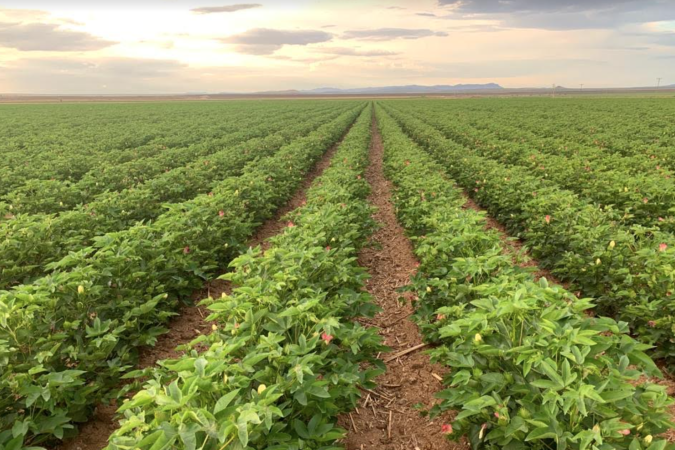This project was successfully funded by both Direct Participations and Steward Regenerative Capital.

WR Johnson & Sons utilize biological inputs from AEA to manage their organic crops. This loan will be used to purchase inputs on credit for the 2024 season.
Funded on 06/18/2024
James Johnson and his two sons are 4th and 5th-generation farmers in Columbus, New Mexico. About ten years ago, they began their regenerative journey to transition their farm away from conventional production agriculture towards a system that focuses on soil health and biology.
They started planting a diverse cover crop mix in 2011 and 2012 but they kept seeing a decline in yields and profitability on their farm. Through a lot of trial, error, and thinking, they realized that they have a soil biology problem. Fast forward to today, they are staunch advocates of the regenerative agriculture movement and are still constantly testing and learning new approaches to improve their soil health and manage a regenerative commodity agriculture operation.
James and his sons are on a journey to learn more about the soil and the health of the land that their family has been farming since the 1950s. Their journey has led them to relearn the “old ways of agriculture” and pay closer attention to what is happening in the soil and how they can use organic inputs and a focus on soil biology to increase the resiliency of their farming operation.
This loan will be used to purchase 2024 inputs from AEA on credit, allowing WR Johnson and Sons to better manage in-season cash flow.
WR Johnson and Sons utilize a number of sustainable practices throughout their operation. They are constantly testing and iterating in order to improve their farmland and soil health as well as maintain a profitable business. Practices include:
Get project announcements, farmer introductions, company updates, and more by subscribing to the Steward newsletter. Join our growing community of people who are making regenerative agriculture the foundation of our future.
Join a growing community of sustainably-minded lenders reaping the rewards from responsible farming